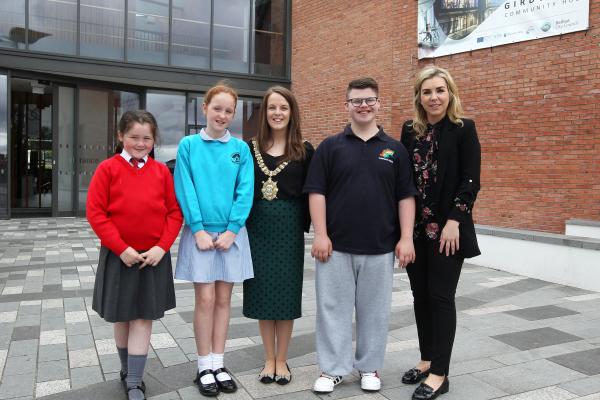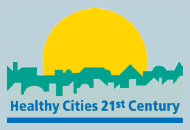Making Belfast a child friendly, healthy city

There has been a noticeable increase recently in the number of news stories about children’s health, and the publication this week of the Royal College of Paediatrics and Child Health’s (RCPCH) ‘State of child health’ report has brought into sharp focus the need to deal with this important health issue at a local level. While we welcome the report, its conclusions are highly concerning, citing the health of children in Northern Ireland as being ‘among the worst in Europe’, with clear root causes including increasing levels of poverty, obesity and low levels of breastfeeding.
Too often we talk about these issues in isolation, but this report demonstrates the need to take actions which actually tackle the causes of health issues, both for children and adults. If we don't do that our health service will only face further long term pressure, when resources are already stretched. It will take a combination of education and public policy in action to improve the health outcomes of children locally.
Having seen first hand how many cities around Europe are encouraging health living in young people, Belfast Healthy Cities has run the Healthy Places: Healthy Children programme. This programme works with schools right across Belfast, and encourages children to identify ways to improve their environment, get active and plan for healthier lifestyles.
The 2017 programme, which has just finished, saw almost 20 schools undertake work on how the physical environment around children can impact their health. The pupils piloted the use of a new dedicated teaching resource in the classroom over recent months and today was the culmination of that work. They presented their learning experiences and proposals that could improve their environments and make their local areas more ‘child-friendly’ to a panel of decision makers from health, housing and planning departments who will provide feedback on the children’s proposals. This programme is intentionally children led, giving them ownership and encouraging them to look at how the physical space they are in every day impacts on them and how it can be improved.
Addressing inequality across our city is essential to improving health, and, as a WHO Healthy City, we are committed to working towards reducing inequalities. Our current Flagship training programme, Reducing Inequality: Getting Results, has been received positively by participants from a number of sectors across Northern Ireland. The WHO Europe framework for reducing inequalities focuses on three main domains for action: people, place and process. As Belfast City Council develops the Belfast Agenda and their Local Development Plan it is important that health and equality are at the fore, to ensure that the vision of Belfast is a child friendly city.
While the ‘State of child health’ makes for difficult reading, we have the opportunity now to grasp the nettle and actually deal with the problem to ensure that our children grow up in an active, healthy city. That’s the important thing.


